Enjoying the comforts of home with your furry companion at your side can bring you great joy and security. Unfortunately, many household items that you use regularly are unsafe for your pet. Being a responsible pet owner means protecting your pet from accidents and injuries, but you may miss the dangers without awareness. Our Aberdeen Veterinary Clinic team covers everyday household pet dangers and protecting your pet.
Household pet hazards
You likely fill your home with items that you don’t consider harmful for your pet. Unfortunately, from chemicals and plants to food and small objects, there is no escape from the plethora of pet-toxic items. Ensuring a pet-safe environment requires awareness, so here are the most common hazardous household items:
- Herbicides and pesticides
- Cocoa mulch and blood meal fertilizers
- Plants (e.g., lilies, azaleas, ivy, philodendron)
- Human medications
- Foods (e.g., chocolate, onions, and the sugar substitute xylitol)
- Household cleaners (e.g., ammonia, bleach)
- Antifreeze
- Mothballs
- Small, ingestible items (e.g., buttons, coins, batteries)
- Electrical cords
- Rodenticides
- String-like items (e.g., string, ribbon, thread)
Creating a pet-safe home
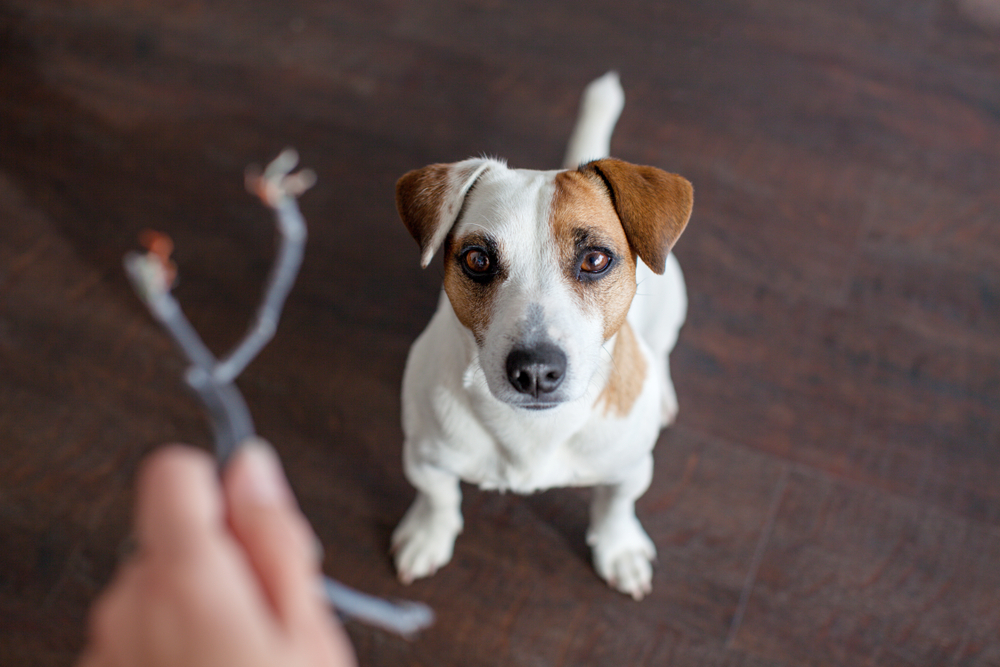
Pet-proofing your home before emergencies happen is the best protection. Follow these steps to ensure your home is pet-safe:
- Store all chemicals and cleaners — Keeping your home, garage, and yard clean and tidy is healthy for your family, but many household chemicals contain noxious substances that can also harm pets. Cleaning agents, pesticides, essential oils, and automotive fluids are all potential pet emergencies. Store chemicals in locked containers or cabinets, or on high garage, shed, or closet shelves.
- Hide electrical cords and wires — Puppies and kittens are naturally curious and often tempted to chew whatever they find, including electrical cords. Conceal cords behind furniture, plug them high up on walls, or use cord covers to prevent pet access. Additionally, unplug and store appliances when not in use to minimize the risk of electrical shock.
- Choose pet-friendly plants — Household plants can beautify and add serenity to your home, but many household plants are toxic to pets if ingested. Before you bring home a new plant, check the ASCPA website for their list of toxic and non-toxic plants for pets. Plants that your pet can safely nibble include spider plants, Boston ferns, and bamboo palms.
- Opt for lockable trash cans — Most pets are opportunistic and an open trash can is a dinner invitation. But, trash bins often contain a cornucopia of pet hazards, such as spoiled food, sharp objects, choking hazards, and dangerous foods. Ensure your trash bins have secure lids or are inaccessible to pets. Additionally, always dispose of food scraps and packaging promptly to minimize temptation.
- Create pet-free zones — Certain home areas, such as the garage, attic, laundry room, or basement, contain hazardous materials or machinery. Restrict your pet’s access to these rooms with baby gates or pet barriers. Also, ensure your pet’s safety while you clean by confining them to other areas.
- Put away small objects — Small objects, such as coins, buttons, rubberbands, batteries, or hair ties, can be choking hazards if swallowed by your pet. Thoroughly check your home and pick up any small items that could be an accident waiting to happen, and store them safely in drawers or containers. When you empty your purse or backpack, put the contents up high where your pet can’t reach.
- Install childproof latches — Cabinets and drawers that contain potentially harmful
household items, including cleaning supplies, sharp objects, or plastic bags, should be secured with childproof latches to prevent pets’ access. Any item you’d keep away from your small child is also a possible risk for your furry pal.
Unfortunately, despite your best efforts, accidents can still happen. Always keep our Aberdeen Veterinary Clinic‘s contact information handy, along with the number for the Pet Poison Helpline.
When it comes to your beloved pet, you can never be too careful, so pet-proof your home as best you can, and supervise your pet when they play with your children or other pets, when they are in an unfamiliar environment, or when you bring new items into your home. Contact our Aberdeen Veterinary Clinic team should you need advice about possible toxic items or you suspect your pet is in trouble.


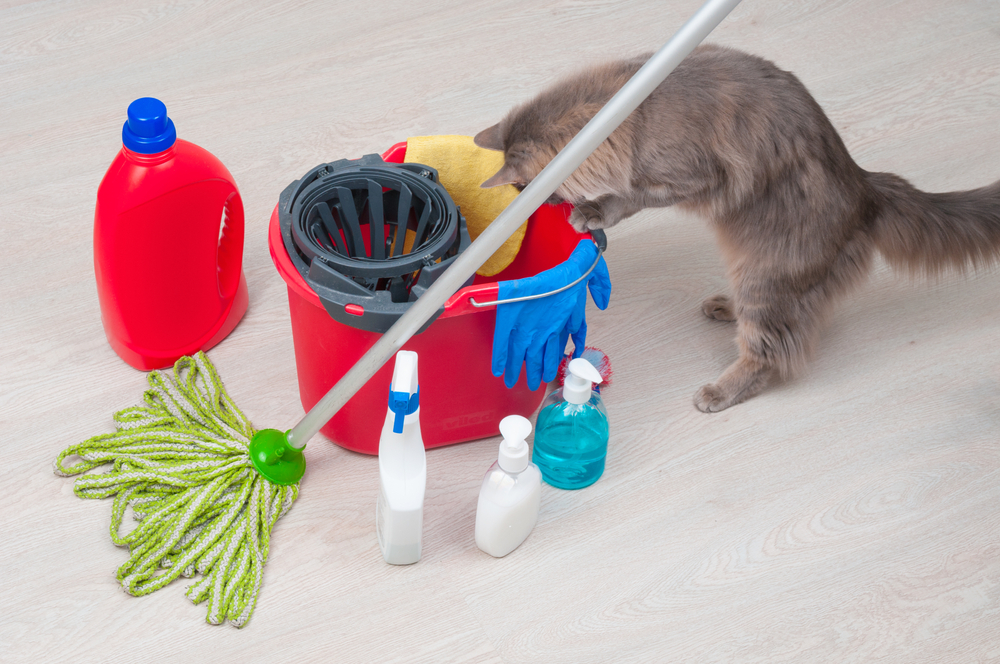
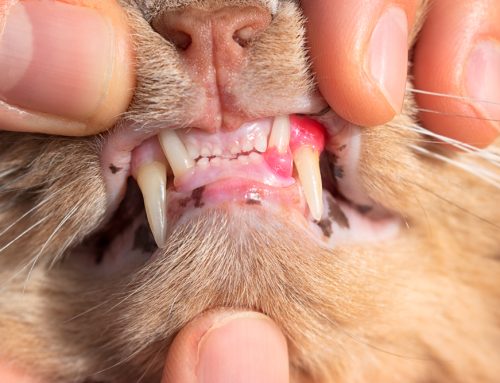
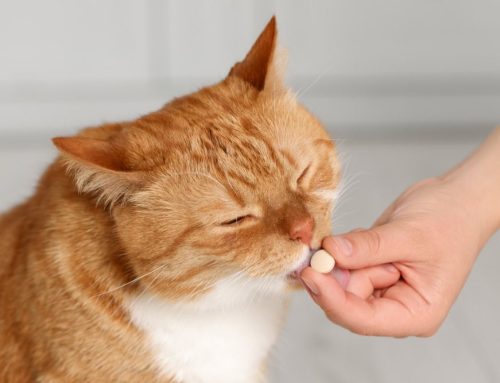
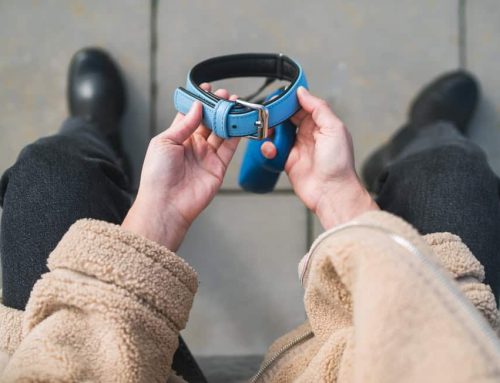
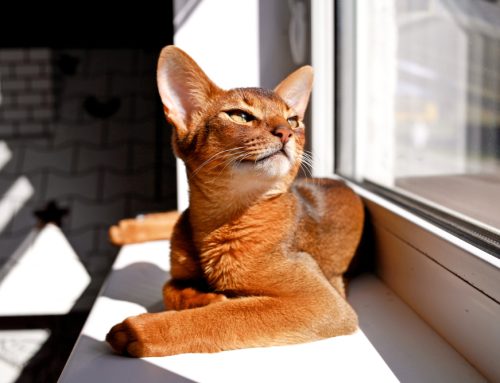
Leave A Comment